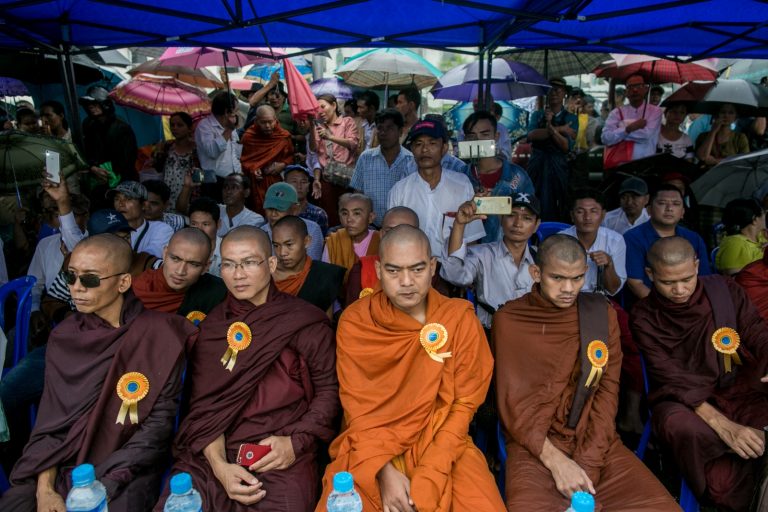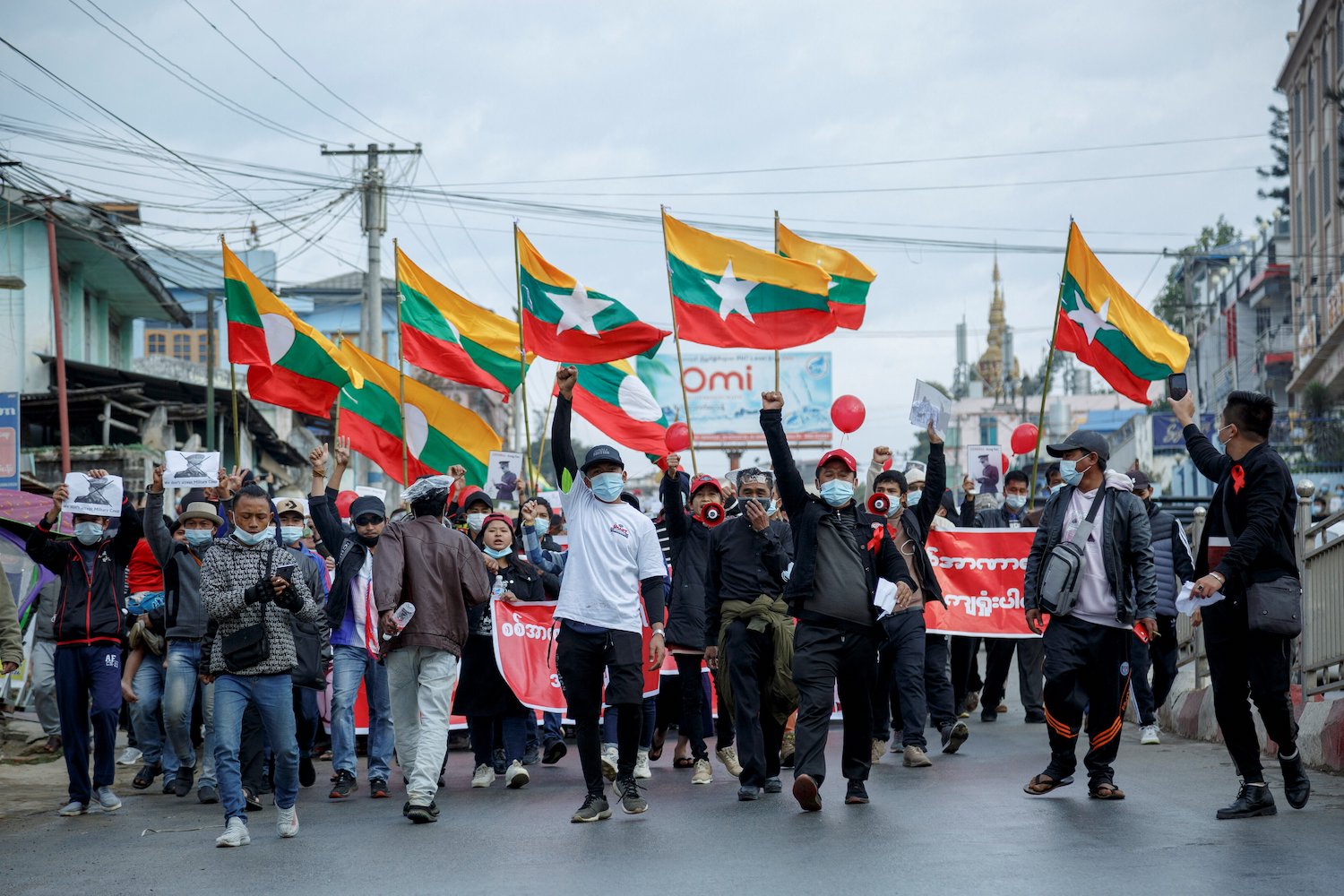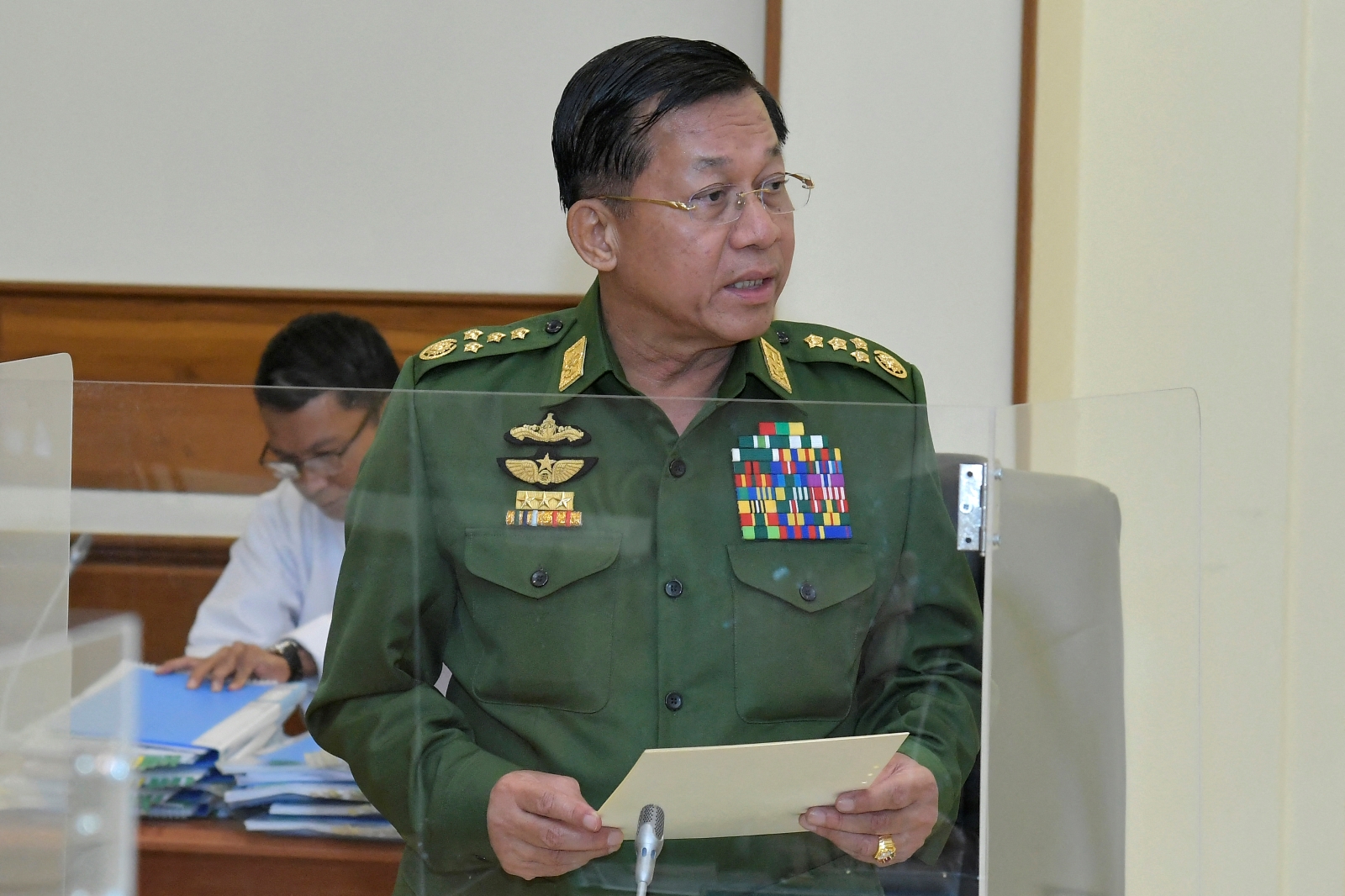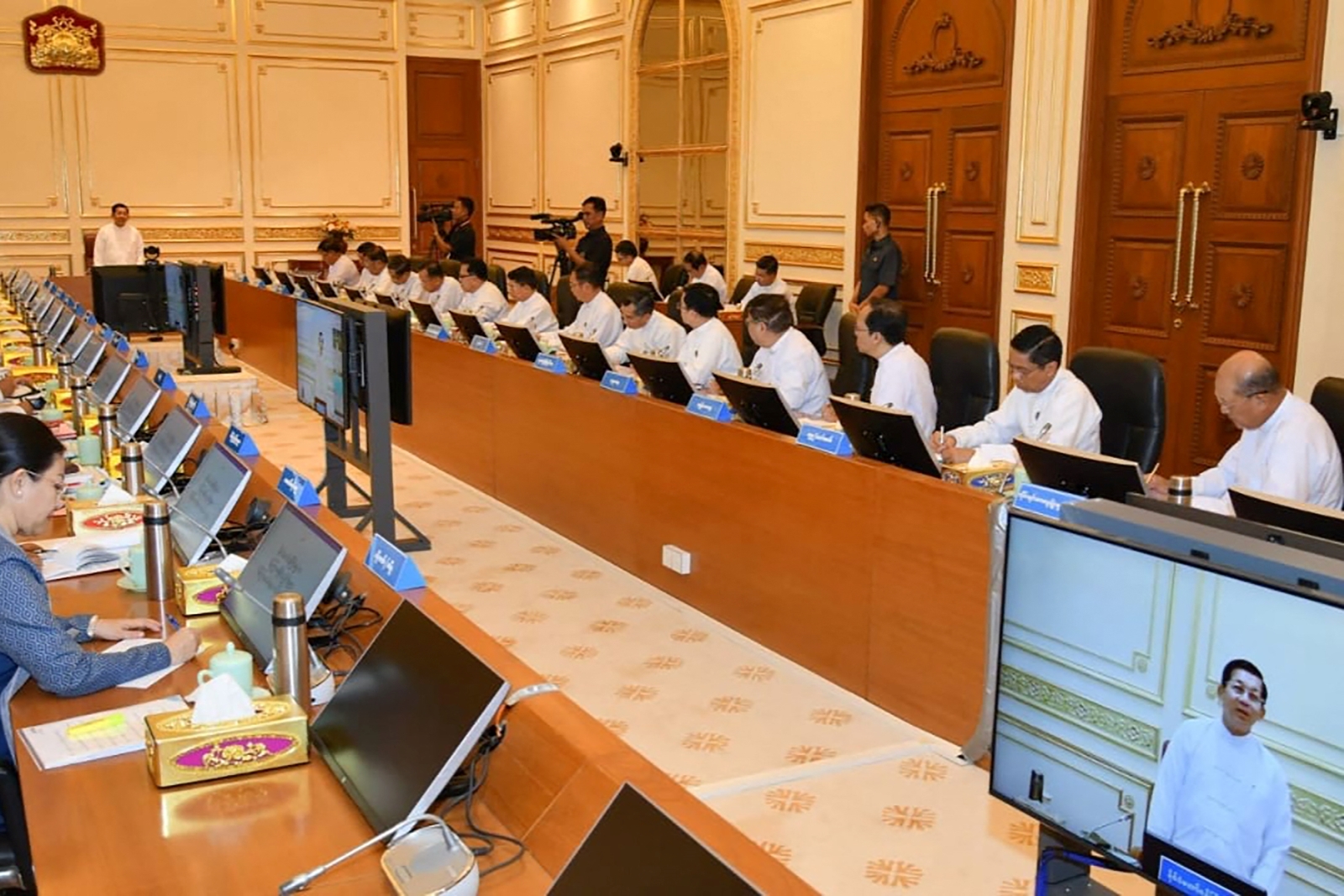Achieving a smooth transition will require both the NLD and the Tatmadaw to act strictly according to the provisions of the controversial 2008 Constitution.
By SITHU AUNG MYINT | FRONTIER
There was intense domestic and international interest in last month’s meeting between National League for Democracy leader Daw Aung San Suu Kyi and Tatmadaw Commander-in-Chief Senior General Min Aung Hlaing.
The meeting in Nay Pyi Taw on February 17 was their third to discuss the political transition since the NLD’s crushing victory over the military-backed Union Solidarity and Development Party in the November election.
A post on the Facebook page of the Commander-in-Chief’s office said they discussed “the rule of law and the process to create a lasting peace” during the one-hour meeting.
Before I explore what else was likely to have been discussed at the meeting, that an NLD source said was proposed by the party, some background is necessary.
Support more independent journalism like this. Sign up to be a Frontier member.
The Union Parliament will soon nominate the three vice-presidential candidates and choose one to be president, who will in turn appoint a cabinet. The NLD is planning to submit a bill to suspend Section 59(f) of the constitution to pave the way for the appointment of Daw Aung San Suu Kyi as president. Section 59(f) makes the NLD leader ineligible for the presidency because her sons are foreign citizens. To suspend the clause, the NLD will need the support of the Tatmadaw MPs, who have 25 percent of the seats in parliament and a veto over constitutional change.
At one of their earlier meetings, Senior General Min Aung Hlaing asked Daw Aung San Suu Kyi to appoint military MPs as chief ministers of Kachin, Rakhine and Shan states and Yangon Region. This demand was certain to have been raised again at the February 17 meeting. Other matters were also certain to have been raised but as few details of the talks have been released, I can only make a calculated guess about what was likely to have been discussed.
Outgoing President U Thein Sein and the Tatmadaw have already responded to the reported move by the NLD to suspend 59(f). In a letter earlier this month to the new, NLD-dominated Union parliament, President U Thein Sein urged MPs to protect the constitution and abide by the country’s laws. Some have interpreted his letter as indicating that he opposes the suspension of 59(f).
In another possible indication of concern over the transition, President U Thein Sein did not attend the US-ASEAN summit hosted by President Barack Obama in California last month. Information Minister and presidential spokesperson U Ye Htut said U Thein Sein had stayed home in case of an emergency situation. There was no reason to expect an emergency and perhaps U Thein Sein decided not to leave Myanmar in case there was a move in the hluttaw to suspend 59(f).
Senior General Min Aung Hlaing indicated opposition to changing the constitution when he was asked about 59(f) in an interview with the Washington Post last November in the aftermath of the NLD’s victory. Asked if he favoured amending 59(f), he replied, “Amendments must be done according to procedures”. This suggests that even if the suspension of 59(f) is discussed in the hluttaw, the support of Tatmadaw MPs could not be expected.
Likewise, Daw Aung San Suu Kyi cannot be expected to comply with Senior General Min Aung Hlaing’s demand for Tatmadaw MPs to be appointed as chief ministers in Kachin, Rakhine and Shan states and Yangon Region. Daw Aung San Suu Kyi wants NLD MPs appointed to the positions because she wants an efficient, corruption-free government. The constitution provides for chief ministers to be appointed by the president.
It’s worth remembering that the 2015 election was held under the constitution and President U Thein Sein responded to the NLD victory by pledging to hand over power accordingly. Commander-in-Chief Senior General Min Aung Hlaing also pledged that the Tatmadaw would cooperate with the incoming government.
A smooth political transition requires that the NLD and the Tatmadaw act in strict compliance with the constitution. This is not the right time to amend the constitution, even if a majority of the people do not approve of it and it does not provide for the creation of a democratic federal Union. Any move to amend the constitution should come later in the transition. A controversial move by either the NLD or the Tatmadaw at this sensitive time could create unpredictable problems and adversely affect the transition of power.






